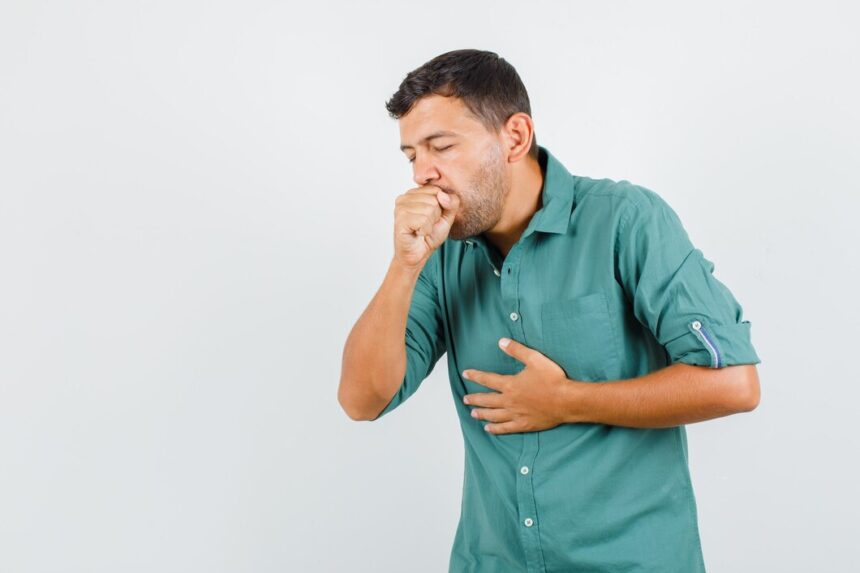Lung cancer is a serious and potentially life-threatening disease that often develops silently, especially in its early stages. Recognizing the early signs and symptoms is crucial for early detection and improved treatment outcomes. Here’s a detailed overview of what to watch for:
Understanding Lung Cancer
Lung cancer begins when abnormal cells grow uncontrollably in the lungs. It is often associated with cigarette smoking but can also occur in non-smokers due to other factors like secondhand smoke, environmental exposures, or genetic predisposition. There are two main types: non-small cell lung cancer (NSCLC) and small cell lung cancer (SCLC), each with different characteristics and treatments.
Early Signs and Symptoms
- Persistent Cough: A persistent or worsening cough that doesn’t go away or changes in its nature (becomes hoarse or deepens) should be evaluated. It can be caused by irritation from the tumor or blockage in the airways.
- Chest Pain: Unexplained chest pain that worsens with deep breathing, coughing, or laughing may indicate lung cancer. This pain can be localized and persistent.
- Shortness of Breath: Difficulty breathing or shortness of breath, especially if it persists or worsens with physical activity, could be a sign of lung cancer. It occurs when the tumor affects lung function or causes fluid buildup around the lungs.
- Coughing Up Blood: Hemoptysis, or coughing up blood or bloody mucus, is a significant symptom that requires immediate medical attention. It can indicate bleeding within the airways or lungs.
- Fatigue: Persistent tiredness or lack of energy that doesn’t improve with rest can be a symptom of many medical conditions, including lung cancer. It occurs due to the body’s increased metabolic demands and the cancer’s impact on overall health.
- Unexplained Weight Loss: Sudden and unexplained weight loss, without changes in diet or physical activity, can be a sign of lung cancer or other underlying health issues. Cancer cells can alter metabolism and energy expenditure.
- Wheezing: Wheezing or a whistling sound when breathing, especially if it persists or occurs without a history of asthma or allergies, may indicate airway obstruction due to lung cancer.
- Hoarseness: Changes in voice, such as hoarseness or raspy voice, may occur if the tumor affects the nerves or structures around the lungs, including the vocal cords.
- Persistent Infections: Recurrent or persistent respiratory infections, such as bronchitis or pneumonia, can sometimes be a sign of an underlying lung issue, including lung cancer.
Risk Factors and Prevention
While anyone can develop lung cancer, certain factors increase the risk:
- Smoking: Cigarette smoking is the leading cause of lung cancer. Quitting smoking at any age can significantly reduce the risk.
- Secondhand Smoke: Non-smokers exposed to secondhand smoke are also at increased risk.
- Exposure to Radon: Radon is a naturally occurring radioactive gas that can seep into homes and buildings, increasing the risk of lung cancer.
- Exposure to Asbestos and Other Carcinogens: Occupational exposure to asbestos, arsenic, chromium, nickel, and other carcinogens can increase the risk.
Diagnosis and Treatment
If lung cancer is suspected based on symptoms or risk factors, doctors may recommend imaging tests (like X-rays or CT scans), sputum cytology, biopsy, or other diagnostic procedures to confirm the diagnosis. Treatment options depend on the type and stage of cancer and may include surgery, chemotherapy, radiation therapy, targeted therapy, or immunotherapy.
Early detection of lung cancer is crucial for effective treatment and improved outcomes. Recognizing the early signs and symptoms and seeking prompt medical evaluation can make a significant difference in prognosis. If you or someone you know experiences any of these symptoms, especially if they persist or worsen over time, consult a healthcare professional for further evaluation and guidance. Taking proactive steps, such as quitting smoking and reducing exposure to carcinogens, can also help reduce the risk of developing lung cancer.










